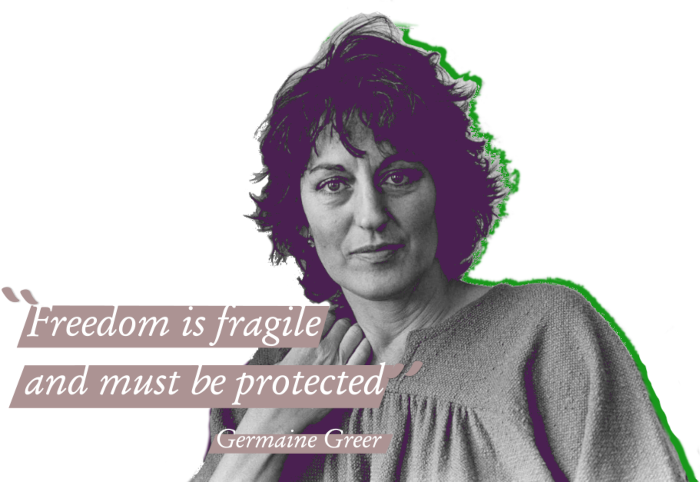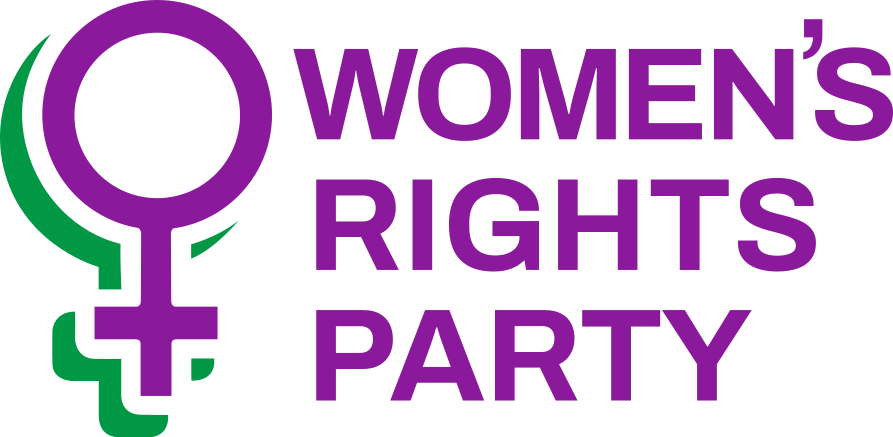Hi, I’m Jill Ovens, National Secretary of the Women’s Rights Party.
With some other women, we started the Women’s Rights Party in the week after Kelly Jay Keen’s visit to New Zealand. March 25, 2023, was a turning point for us, and for everyday New Zealanders who were appalled at the violence that day in Albert Park, Auckland.
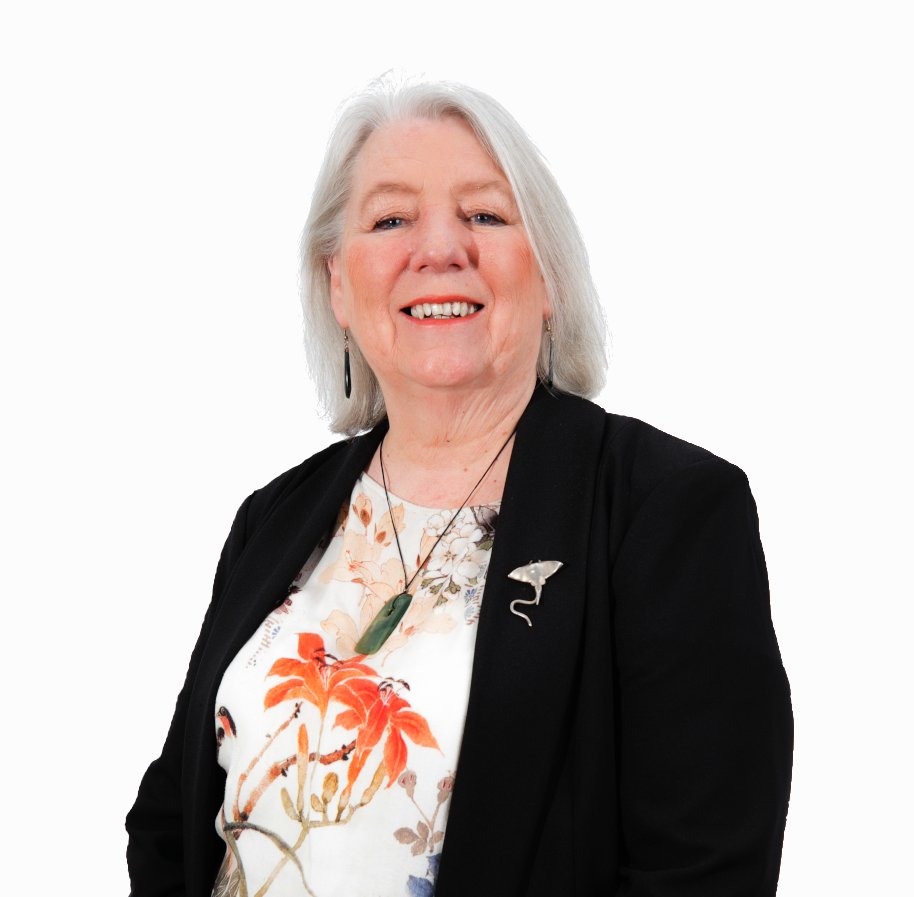
Disinformation From Mainstream Political Parties
What really upset me in the week before was hearing Labour and Green MPs slagging off Kelly Jay because they couldn’t stop her, as a British citizen, from coming here. That, and the constant media barrage portraying her as “anti-trans” and a “Nazi”, attempting to create a storm of outrage against her visit.
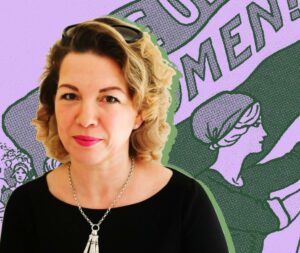
The anti-Kelly-Jay Keen campaign successfully whipped up a frenzied opposition to ONE woman who simply wanted to create a platform for women to express their concerns about issues like safe spaces for women, male participation in women’s sport, the erasure of the word “women” from official language and the dangers to their children from medicalised gender-transition practices.
Incensed by the allegations of Nazism, I wanted to speak that day to remind people that Nazis were no friends of women. They put Socialist women and Jewish women in concentration camps, along with their children, and they performed horrendous experiments on women.
I wanted to point out that today’s neo-Nazis are deeply misogynist.
They turned up in Melbourne not to support, but to discredit the Let Women Speak event – and it worked! The media fell for it, hook, line and sinker.
“Where are the police?”
About 200 women and men turned up to speak at Albert Park and listen to other women, but not one of us could speak because we were drowned out by a cacophony of noise and then attacked by the violent rainbow mob who charged through the barriers that were supposed to separate our women from the protestors. There were no police anywhere near the rotunda where the women’s event was being held.
I was beside a TV reporter and his cameraman and I was shouting “Where are the Police! Where are the Police!”. He said, “Yes, it’s crazy.” It turns out there were some police At the Park – over by the trees or in their van on the perimeter of the protest – “observing” and doing absolutely nothing to protect me and the other women.
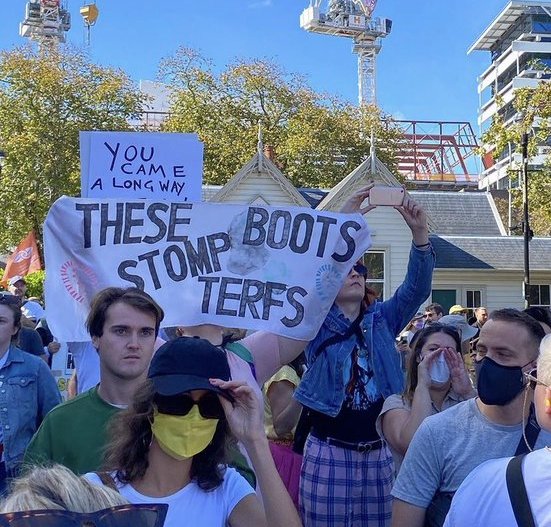
It was the last straw. There was clearly a deliberate police absence.
They had got the message that Kelly-Jay Keen, and those there to participate in her Let Women Speak event, were not people who deserved to be protected. This was a message that came from the very top of the Labour and Green Party leaderships.
I was so angry I resigned from the Labour Party that night, 25th March.
I had been a very active member of the Labour Party, including a period on the Labour Party Council, but I had become increasingly off-side as women’s voices were not being listened to.
For example; despite nearly 70% of submissions to the Select Committee opposing further liberalisation of self-ID on birth certificates, because of the threat to women-only spaces, the legislation was passed without a single MP voting against it – not from the Left or the Right.
Women who presented oral submissions to the Select Committee on the Births, Deaths and Marriages Relationship Bill and the Conversion Practices Bill were treated with disdain by some of the very Labour women MPs I had supported in winning selection in safe seats as a Labour Party regional rep.
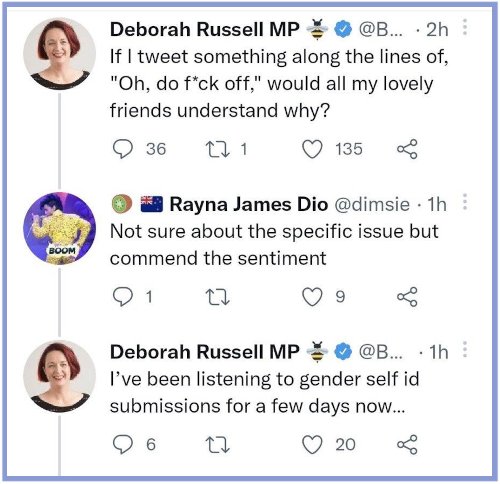
As organiser of the Auckland Labour Women’s hui held before last year’s Conference, I was aware of amendments Labour women had wanted to make to policy proposals about gender reassignment surgery being made more accessible.
The women had sought to put an age limit of 18+ on such surgery. Under pressure from high up in the Labour Party, our amendment was withdrawn and the policy proposal went through Conference unchanged, without debate.
When I spoke to an amendment that came from the same Labour women’s hui about better provision of public toilets, I was shut down because mentioning women’s toilets is supposedly “code for transphobia”. In fact, I was thinking about the huge queues at the women’s loos when we land at Wellington Airport – nothing to do with transpeople!
Long history with the women’s movement
I have been involved in the women’s movement since the 1970s when I attended Auckland University and Germaine Greer came to campus. I had read her book The Female Eunich which resonated strongly with me.
I lived in the US for 10 years till 1987 and had two sons born in Coffeyville Kansas (my first was born here in Auckland). I was involved in La Leche League, home birthing, and a whole food co-operative where our food was delivered by the Ozark Women’s Trucking Collective, which we divided up between our families.
During my time in Kansas, we lobbied for ratification of the Equal Rights Amendment to the US Constitution. It needed two-thirds of the States to ratify – we failed in Kansas, along with other States, and the Amendment failed to reach the threshold.
I was also involved in the anti-nuclear movement and solidarity with Nicaragua. I studied at the William Allen White School of Journalism at the University of Kansas because I thought I could make change through journalism. White was the Editor who famously said “the women of Kansas should raise fewer dahlias and raise more hell.”
A “lady union man”
On return to New Zealand, I worked for State Coal Mines and became actively involved in the battle to keep our State Coal homes, and for apprentices to find alternative jobs, at a time when 500 miners and other employees lost their jobs, including my husband and I.
We marched on Parliament and made the 6 o’clock News when then Minister of Energy Bob Tizard lashed out at a Radio NZ reporter at our miners’ rally. One of the miners said I was the first “lady union man” he had ever met.
This was the start of a 36-year involvement in the union movement which included leading positions in ASTE, a Polytech union, SFWU, E tū, and MERAS, the midwives’ union. I retired from my MERAS leadership position in April this year (2023), and I threw myself into setting up the Women’s Rights Party. You can never retire from fighting for what’s right.
It was through the union movement that I stumbled into gender politics. It was at a CTU National Affiliates Council meeting a couple of years ago. We were discussing a draft strategic plan. There was a section on equity – equity for Māori, for Pasifika, for people with disabilities, for people of different ethnic groups. “Did you forget to include women?” I asked innocently. There was silence. “Oh,” I said. “I see you have included different gender identities. Is this meant to include women? Does this mean we are fighting for equity for men as well?” More silence.
I posted this on my fb page and was piled on by my union friends, my Labour friends and my Green Party friends. “Do you admit that transwomen are women?” they asked over and over. I didn’t think so. I asked “If I identify as Māori does that make me Māori?” “No,” they responded “You have to whakapapa to Māori to be Māori.” Well, don’t you have to be born a woman to be a woman?

Backlash And Erasure
Apparently not, because soon after there was an article in a Sunday newspaper headed “Not all pregnant people are mothers, or women”. It went on to say “not only are not all people who have babies not mothers, not all of them are even women.” This unbelievable erasure of women and denial of biological reality dumbfounded me.
At this time, Milli Hill, author of “Give Birth Like a Feminist” and founder of the Positive Birth Movement, was invited to speak at a College of Midwives Conference, that was subsequently cancelled, effectively cancelling Milli after a petition against having her come here. She had been talking about obstetrical violence against women, and refusing to use the term “birthing people”. For this heresy, she was chucked out of the movement she started. Finally, she had declared she would not be silenced.
A letter I wrote to the Editor of the Sunday paper was punlished, resulting in more backlash against me. A friend saw what was happening, she told another friend, who explained what was behind all this. I learnt what it meant when I was decried as a “cis woman”. She told me how she had lost her job when she questioned the removal of the word “woman” from the organisation’s women’s health pamphlets. I learnt how there was a safe group on fb where women shared their experiences and articles and I joined that group.
But because I was in a leading role within the midwives’ union, I stayed quiet about these issues even though it seemed that birthing and mothering was at the epi-centre of the so-called “culture wars”.
At a meeting I attended in Green MP Jan Logie’s office about ACC cover for birth injuries, I witnessed the word “women” literally erased on the whiteboard and replaced with “birthing people” in the list of stakeholders in this issue. Women were no longer seen as stakeholders in birthing issues, despite the indisputable fact that only female human beings (women) give birth.
I saw the Midwifery Council determinedly struggling to rewrite the scope of practice for midwives without using the word “women”. The only claim from Te Whatu Ora Health NZ in the hospital midwives Collective Agreement negotiations was to replace references to women with gender-inclusive language.
My retirement from the union movement was in fact my liberation. I can now put my energies into the cause of Women’s Rights.
A new political home for women in New Zealand
With another woman displaced from the Green Party, we wrote a Constitution for the newly founded Women’s Rights Party. This was hotly debated within our founding Committee, as was the Policy Platform.
We set up a membership database, opened a bank account, contracted a supporter to make us a website, wrote media releases, printed off a Policy flyer, booked a Conference venue for June, and set out to recruit 500 members so we could register as a political Party and be on the ballot in the General Election in October.
We want to give women an option on the ballot paper if they feel they no longer have a political home because the mainstream parties have stopped listening to women and our concerns.
We are organising and advocating for women’s and girls’ sex-based rights as we contest Parliamentary and local body elections. In doing so, we hope to influence cross party policies to promote and uphold the rights and status of women and girls.
It has been a huge learning curve to unite women from varying political orientations, allowing different ideas and perspectives to be discussed within the Party in an environment of tolerance and respect.
The Women’s Rights Party can be the catalyst for the mobilisation of the women of Aotearoa New Zealand to defend and extend their rights to live and flourish as women in a country that respects and upholds their right to do so.
We are the only political party in New Zealand that puts women first.
Join